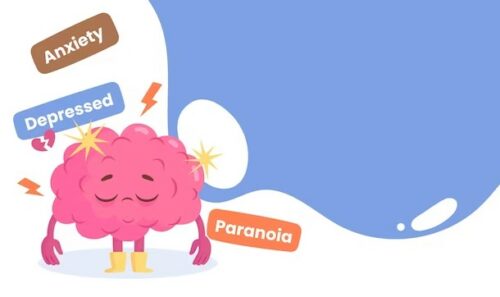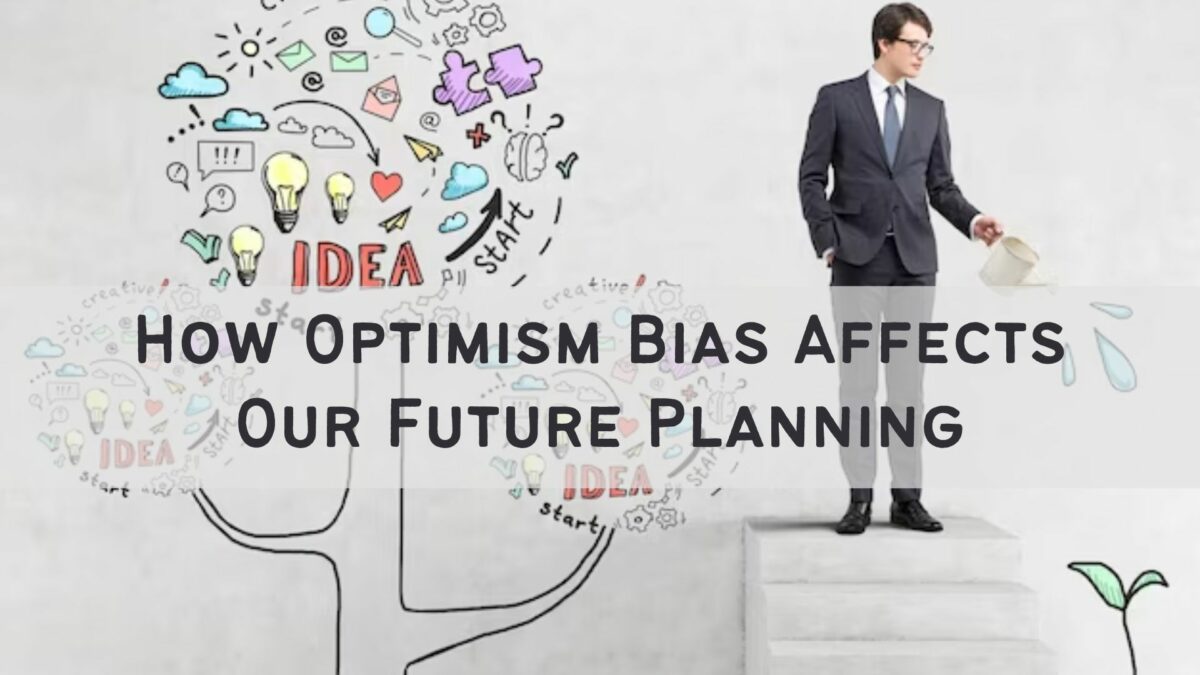“Welcome to Lake Wobegon, where all the women are strong, all the men are good-looking, and all the children are above average.”
–Garrison Keillor
How often have you been driving along on an empty road, with nobody visible for miles and miles – or at least to the next terrain feature – when a car comes along from a crossing road, and, instead of waiting for you to go by, pulls out right in front of you, and goes about 15 miles per hour under the speed limit?
“Driving wouldn’t be so bad if it weren’t for all of the other idiots on the road,” you think to yourself.
- Maybe it’s only me. I doubt it, though. According to neuroscientist Tali Sharot, 93% of college students believe that they are above average drivers. We almost all suffer from what is called optimism bias, or, to use a more connotative term, narcissism bias.
It’s generally in human nature to be optimistic. Our memories are stored in an area called the hippocampus, which interacts with the frontal cortex to create a narrative about the events that we have experienced in the past, and, using those memories, to construct a vision of what will happen in the future.
Sometimes those memories aren’t so great. I can recount many a time when I have screwed up in my life (for a couple of these stories, check out Credit Cards Stopped Me From Working for the WWE and My Most Mortifying Money Moment), and if I dwelled on those times, then I’d risk living out a negative life. It’s called a self-fulfilling prophecy – when your perception about how the future will turn out actually comes true because you alter your behavior to make that outcome happen. When you have a pessimistic view of the world, then things usually turn out to be negative.
How Does Monkey Brain Avoid the Blues?

If you’ve ever heard someone tell you a story about catching a fish, or, better yet, about how the big one got away, each time you hear it, the fish gets bigger and bigger. Or, as one t-shirt said, “The older I get, the better I was.” The hippocampus isn’t exactly the best at recalling every single detail that ever happened in our lives. Instead, it takes a little literary license and revises history. After all, history was written by the winners, and since you are still here and kicking, your hippocampus plays Toynbee and rewrites your personal history to make you look better to yourself. It’s not malicious; it’s to keep you from being pessimistic about the world. The narrative that the hippocampus feeds to the frontal cortex is a revised, more optimistic one, to allow you to think more highly about yourself.
You: “Boy, that girl really didn’t like my joke about the horse and the bar.”
Monkey Brain: “DUMB HUMAN. SHE WANTED YOU. SHE JUST DIDN’T REALIZE IT BEFORE SHE LEFT BAR.”
You: “You’re right. I’m good enough, I’m smart enough, and gosh darn it, people like me!”
There are all sorts of benefits that you get from playing revisionist historian inside your mind, such as lowered stress, higher energy, and, potentially, a longer life.
But, it’s not all rainbows and unicorns being ridden by monkeys covered in suits of armor made from bacon (though it should be, darn it). There’s a downside to all of this rewriting of your personal history book.
When Monkey Brain Allows Revised Histories to Make Himself Cocky

There’s a pretty fine line between being optimistic and being overconfident, and Monkey Brain doesn’t like lines. He usually takes a running leap over the lines and lands (or crashes) way on the other side. Because Monkey Brain alters the narrative of your personal history to gloss over the not-so-bright moments you’ve had, it becomes easy to believe what he’s telling you and to think that you can do no wrong and that nothing bad will ever happen to you.
That’s where the mistakes come in.
Let’s look at some of the areas where overconfidence can kneecap our personal finances:
- Long term care insurance. If you don’t think that you’re ever going to get sick, then you won’t purchase a long-term care policy. However, the statistics show that you’re in the minority if you don’t need long-term care, as, according to the National Clearinghouse for Long Term Care Information, about 70% of people over age 65 will need long-term care services during their lifetime. Furthermore, according to long term care insurance expert Wendy Boglioli, 43% of the people who need to use their long term care policies are under the age of 64 – most of them need the long term care because of an accident. Monkey Brain thinks accidents will never happen to him.
- Life insurance. This is a similar issue as the long-term care issue. Monkey Brain will never die. He won’t get hit by the beer truck. Tornadoes hit other places, but not his house. Although none of us like to contemplate our mortality, it’s important that, if we need to replace our income to support our families in the event of our untimely demise, we need to acknowledge that the possibility exists that we might not be around tomorrow and act accordingly.
- Investing. This is one of Monkey Brain’s favorite places to play. He thinks that he’s the next Warren Buffett. He also thinks that the stock tip your brother’s friend’s cabbie’s father gave him about pork snout futures is a sure winner, and if you just invest everything in that one penny stock, you’re going to get RICH, RICH, RICH! The reality is that we’re subject to a host of biases, and that actively managed funds don’t beat their index counterparts.
- Thinking we’ll work until we’re much older. Since the stock market has not made much progress in the past few years, many of us don’t have the investment account balances that we’d like to have (which makes an argument, in a way, for starting a side gig ), we think that the answer is to work longer. We don’t think that frailties will hit us, and we can keep working until quite a ripe old age before we hang it up and call it a day; however, statistics show that even though people don’t expect to retire when they reach the typical retirement age, most of them do.
Recent research from Wake Forest University shows that people are willing to take gambles with avoiding negative outcomes when they view the cost of the prevention as too high or when they don’t see other people having negative outcomes. In their research, they had college students simulate the costs and effects of taking flu shots. The highest possible score was when the students didn’t get the flu shot and didn’t get flu. If they got the shot, then they significantly reduced the risk of getting the flu. The researchers ran two scenarios – one where it was costly to get a flu shot, and one where it was relatively inexpensive. Unsurprisingly, when the cost of the flu shot was low, students were much more likely to get one. They wanted to lock in their gains (not getting flu) cheaply (the cost of the flu shot). It’s analogous to people who invest in annuities (see my interview with Dr. Wade Pfau for his thoughts on annuities and the annuity puzzle) to ensure a steady stream of income and reduce – but not eliminate – risk to their portfolios.
So, if you can convince Monkey Brain that it’s relatively cheap to protect against a risk, then you’re more likely not to rely on optimism bias (“ME INDESTRUCTIBLE! WILL NEVER GET FLU! FLU FOR WIMPS!”) as your protection.
How can you accomplish the reframing required to make Monkey Brain blink? Here are a couple of suggestions:
- Quanitfy a worst case scenario. Whether it’s getting hit by the beer truck tomorrow or requiring years and years of long-term care insurance coverage, think about what the worst case would be in terms of a hit to your financial well-being and family’s stability. When you compare tens or hundreds of dollars to hundreds of thousands of dollars, suddenly, the costs will seem relatively miniscule in comparison.
- Be honest about your history. While Duke’s Dan Ariely shows that telling the truth is a terrible way to be happy, the unhappiness can be temporary. Use the honest review, not the Monkey Brain/hippocampus revisionist history, of what you have done in the past to identify your mistakes and figure out the lessons you need to learn. You can take a positive outlook on what you’ve learned by telling yourself that you will learn and you will avoid those mistakes in the future. Being positive will help you feel better about yourself.
Avoiding the potential banana peels in life by pretending that they won’t happen to you is a pretty poor way to manage the risks in your life. Instead, be realistic about what could happen to you and take appropriate steps to insure yourself against them. Then, you really can be optimistic about what your future holds, and the next time that person pulls right out in front of you, you can just smile and drive along, enjoying the scenery rather than cursing the other person’s incompetence.
Author Profile
- John Davis is a nationally recognized expert on credit reporting, credit scoring, and identity theft. He has written four books about his expertise in the field and has been featured extensively in numerous media outlets such as The Wall Street Journal, The Washington Post, CNN, CBS News, CNBC, Fox Business, and many more. With over 20 years of experience helping consumers understand their credit and identity protection rights, John is passionate about empowering people to take control of their finances. He works with financial institutions to develop consumer-friendly policies that promote financial literacy and responsible borrowing habits.
Latest entries
 Low Income GrantsSeptember 25, 2023How to Get a Free Government Phone: A Step-by-Step Guide
Low Income GrantsSeptember 25, 2023How to Get a Free Government Phone: A Step-by-Step Guide Low Income GrantsSeptember 25, 2023Dental Charities That Help With Dental Costs
Low Income GrantsSeptember 25, 2023Dental Charities That Help With Dental Costs Low Income GrantsSeptember 25, 2023Low-Cost Hearing Aids for Seniors: A Comprehensive Guide
Low Income GrantsSeptember 25, 2023Low-Cost Hearing Aids for Seniors: A Comprehensive Guide Low Income GrantsSeptember 25, 2023Second Chance Apartments that Accept Evictions: A Comprehensive Guide
Low Income GrantsSeptember 25, 2023Second Chance Apartments that Accept Evictions: A Comprehensive Guide

